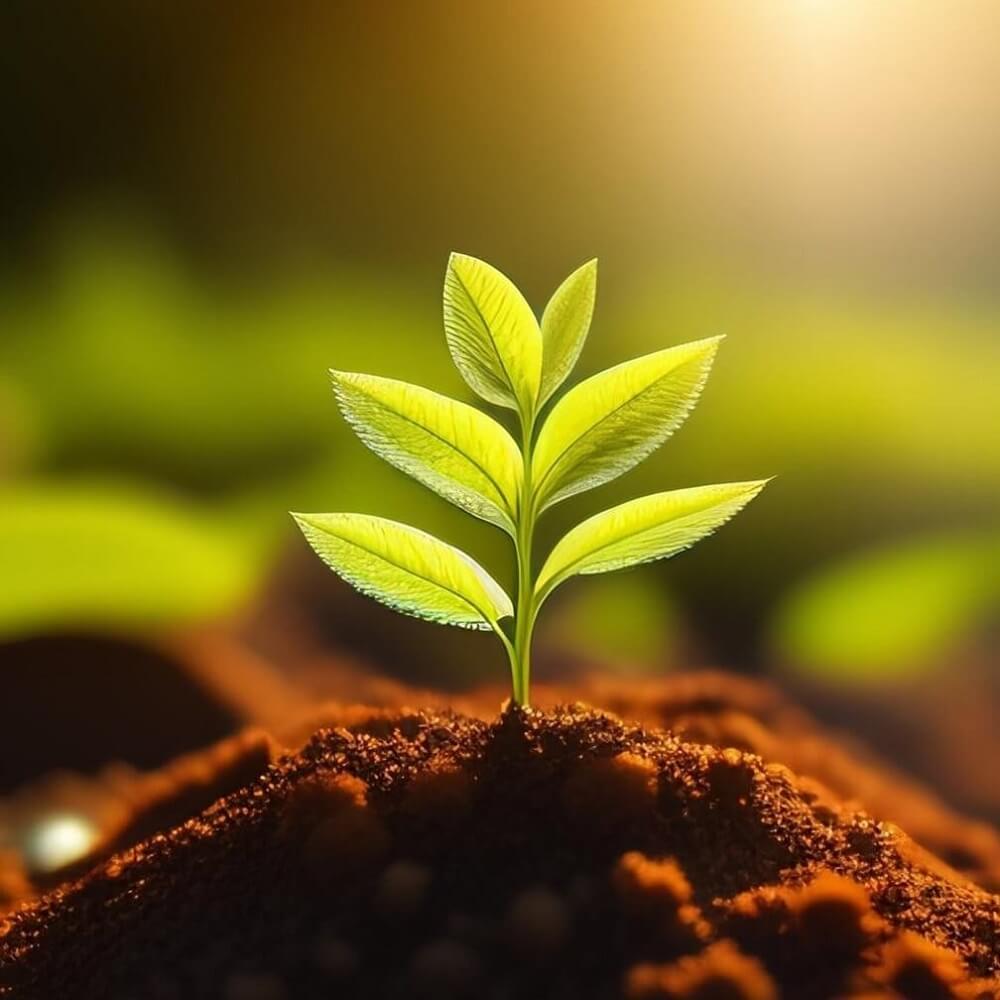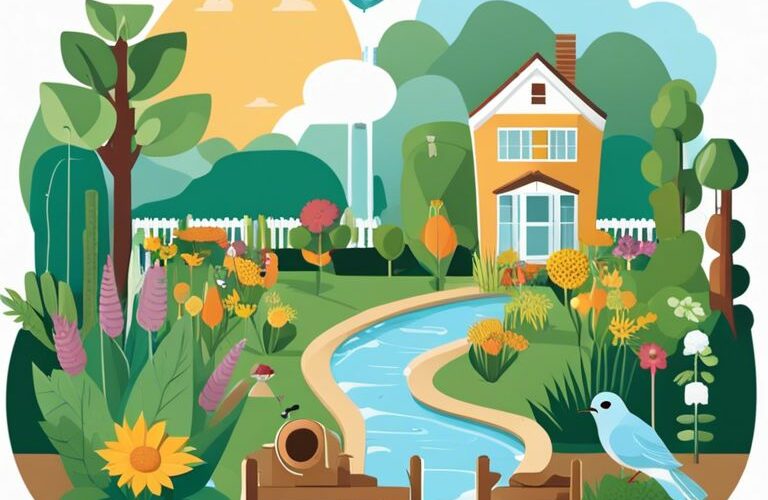Gardening often requires a delicate balance between providing the necessary moisture for plants to thrive and respecting the natural environment. In today’s world, water scarcity and pollution are significant challenges that cannot be ignored. To ensure a healthy and sustainable garden, it is essential to adopt environmentally friendly watering practices. By understanding the needs of nature and implementing efficient techniques, gardeners can contribute positively to the ecosystem while enjoying a flourishing garden. In this blog post, we will explore the importance of environmentally friendly watering in the garden and provide practical tips for achieving a balance between environmental preservation and gardening success.
Table of Contents
Water Conservation Techniques
To ensure a sustainable and environmentally friendly approach to watering your garden, it is essential to employ water conservation techniques that minimize wastage and maximize efficiency.
Implementing Drip Irrigation Systems
For efficient and targeted watering, drip irrigation systems are highly effective. This method delivers small, steady amounts of water directly to the roots of plants, minimizing evaporation and runoff. By utilizing a network of hoses and emitters, drip irrigation ensures that water is distributed precisely where it is needed, promoting healthy plant growth while conserving water.
For optimal results, it is important to install a timer to regulate the frequency and duration of watering cycles, ensuring that plants receive the right amount of water at the right time. Additionally, the use of mulch in combination with drip irrigation can further enhance moisture retention in the soil.
The Benefits of Rainwater Harvesting
For environmentally conscious gardeners, rainwater harvesting presents a sustainable solution for reducing reliance on mains water supply. By collecting rainwater in storage tanks or barrels, gardeners can harness this natural resource for watering their plants, reducing the strain on local water sources and minimizing water bills.
Systems for rainwater harvesting can be easily integrated into gardens, with options for simple downspout attachments or more complex gutter systems. The benefits of rainwater harvesting extend to the garden’s health, as rainwater is naturally free of the chemicals and additives often found in tap water, providing plants with pure, nourishing hydration.
Implementing rainwater harvesting systems can also help prevent soil erosion and reduce the risk of flooding by diverting excess water away from vulnerable areas.
Mulching for Moisture Retention
One of the most effective methods for retaining soil moisture is through mulching. By applying a layer of organic materials such as bark, wood chips, or compost to the soil surface, gardeners can create a protective barrier that reduces evaporation and insulates the soil, keeping it cooler and moister for longer periods.
Implementing mulching also serves as a natural weed suppressant, providing a dual benefit of conserving water and minimizing the need for herbicides.
Timing and Efficiency in Watering
Implementing a strategic approach to watering based on timing and efficiency is crucial for conserving water in the garden. Rainwater should ideally be collected and stored for use during drier periods, maximizing its beneficial impact on plant health while minimizing reliance on mains water.
Choosing the Right Plants
Not all plants are created equal when it comes to water efficiency. When planning a garden that is environmentally friendly, it’s important to choose plants that are well-suited to your local climate and soil conditions. By selecting the right plants, you can help to conserve water and create a more sustainable garden that is in harmony with nature.
Native Plants for Water-Efficient Gardens
An excellent way to promote water conservation in your garden is by choosing native plants that are adapted to your region’s natural rainfall patterns. These plants have evolved to thrive on minimal water, making them ideal choices for a water-efficient garden. Native plants also provide essential habitat and food sources for local wildlife, contributing to a healthy and balanced ecosystem.
Drought-Resistant Varieties
The selection of drought-resistant plant varieties is another important factor in creating a water-efficient garden. These plants have the ability to withstand extended periods of dry weather, requiring minimal irrigation to thrive. The use of drought-resistant varieties can significantly reduce the need for supplemental watering, helping to conserve water resources and minimize the environmental impact of garden maintenance.
To further enhance the water efficiency of your garden, consider using mulch around plantings to help retain soil moisture and reduce evaporation. This can also help to suppress weed growth and improve soil health, creating a more resilient and sustainable garden ecosystem.
Designing a Garden with Water Conservation in Mind
For optimal water conservation, it’s essential to carefully plan and design your garden layout. By grouping plants with similar water requirements together, you can create efficient irrigation zones that minimize water waste. Consider incorporating elements such as rain gardens, bioswales, and permeable paving to capture and utilize rainwater, further reducing the need for supplemental watering.
Choosing the right plants and designing a garden with water conservation in mind are essential steps towards creating an environmentally friendly and sustainable outdoor space. By embracing these principles, you can contribute to the preservation of water resources, support local wildlife, and cultivate a garden that thrives in harmony with nature.
Innovative Solutions for Sustainable Watering
Your garden can thrive while still being environmentally sustainable. By utilizing innovative solutions for sustainable watering, you can maintain a lush, healthy garden without putting a strain on the natural resources.
Greywater Systems for Garden Irrigation
Innovative greywater systems are a sustainable solution for garden irrigation. These systems collect water from sources such as sinks, showers, and laundry, treating it to remove impurities and then redirecting it for use in garden irrigation. Greywater systems not only reduce water wastage but also provide a nutrient-rich water source for your garden, promoting healthy plant growth and reducing the need for synthetic fertilizers.
Smart Technologies and IoT in Garden Water Management
Systems such as smart irrigation controllers and IoT-enabled devices are revolutionizing garden water management. By leveraging weather data, soil moisture levels, and plant water needs, these technologies optimize watering schedules to minimize water usage while ensuring your garden stays healthy and vibrant. The use of smart technologies also allows for remote monitoring and control of your garden irrigation system, giving you the ability to manage water usage efficiently and effectively.
Garden irrigation systems equipped with smart technologies and IoT capabilities can lead to significant reductions in water usage, improved plant health, and lower maintenance requirements. By integrating these innovative systems into your garden, you can contribute to water conservation efforts while enjoying the beauty and productivity of a well-maintained garden.
Conclusion
Considering all points, it is evident that environmentally friendly watering in the garden is crucial in maintaining a balance between nature’s needs and human intervention. By implementing strategies such as rainwater harvesting, drip irrigation, and using drought-resistant plants, gardeners can minimize water waste and promote biodiversity in their outdoor spaces. Making conscious choices about when and how to water, and using natural fertilizers, will further contribute to a healthier, more sustainable environment. By adopting these practices, we can ensure that our gardens thrive while preserving the delicate balance of the natural world.
FAQ
Q: Why is environmentally friendly watering important in the garden?
A: Environmentally friendly watering in the garden is important because it helps conserve water, reduces pollution and runoff, and supports the health of soil and plants. It also contributes to overall ecological balance and sustainability.
Q: What are some environmentally friendly watering methods for the garden?
A: Some environmentally friendly watering methods for the garden include using a drip irrigation system, collecting rainwater in barrels, mulching to retain moisture, and watering plants in the early morning or late afternoon to minimize evaporation.
Q: How can I balance nature’s needs while watering my garden?
A: To balance nature’s needs while watering your garden, consider using native plants that are adapted to the local climate and require less water, practicing water-wise gardening techniques, and being mindful of the water needs of different plant species. It’s also important to avoid overwatering, which can lead to water waste and harm the ecosystem.

Our contributing author is a passionate advocate for eco-friendly living and sustainability. With a background in eco-life, they are dedicated to inspiring and empowering individuals to adopt environmentally conscious lifestyles. Through insightful articles, they share practical tips, innovative solutions, and thought-provoking perspectives to promote a greener, more sustainable world. Join them on the journey towards eco-smart living and discover how small choices can make a big impact. 🌱








